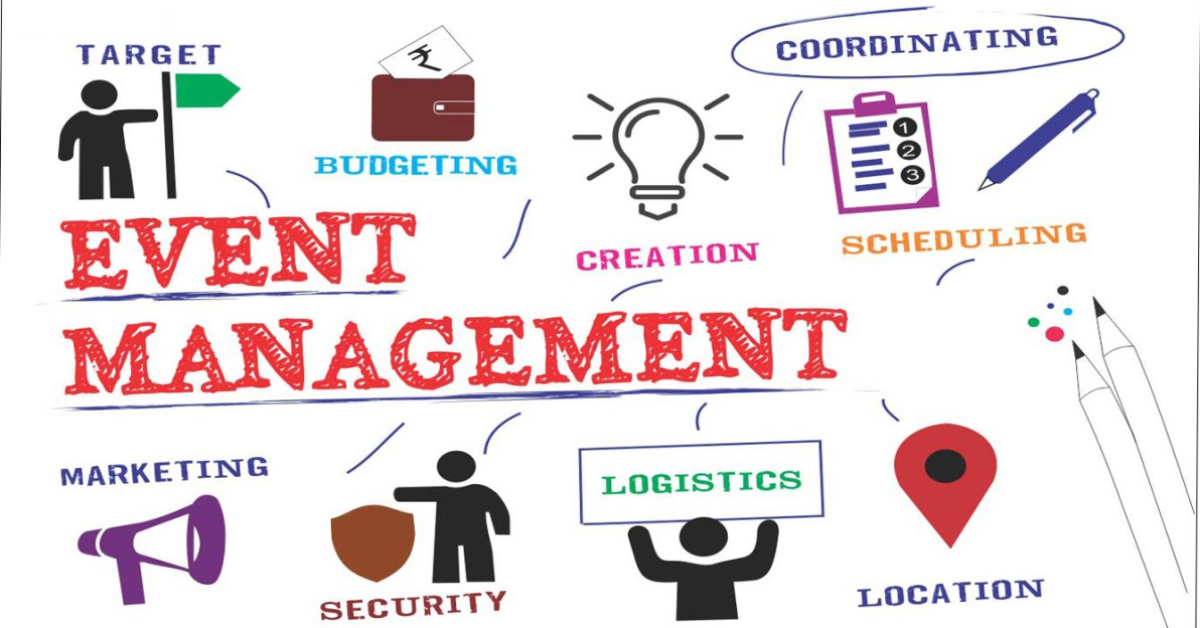Event planning is an intricate art and science of organizing occasions that leave lasting impressions. Whether it’s a corporate meeting, wedding, or a community fundraiser, the success of an event hinges on meticulous planning and execution. This blog delves into the world of event planning, covering its importance, key steps, challenges, and emerging trends.
The Importance of Event Planning
Events are pivotal moments that bring people together for a common purpose. Effective event planning ensures:
1. Seamless Execution
Proper planning minimizes disruptions and ensures the event unfolds as envisioned.
2. Memorable Experiences
Well-planned events captivate attendees, fostering positive memories and relationships.
3. Efficient Use of Resources
A detailed plan optimizes time, budget, and resources, maximizing value.
4. Achieving Goals
From branding to fundraising, events are platforms to achieve specific objectives effectively.
Key Steps in Event Planning
1. Define the Event’s Purpose
The foundation of any successful event lies in understanding its purpose. Ask:
- What is the event’s objective?
- Who is the target audience?
- What outcomes are expected?
2. Budget Creation
Establishing a budget is critical to avoid overspending. Include:
- Venue costs
- Catering and beverages
- Entertainment
- Marketing and promotions
- Contingencies
3. Choosing the Right Venue
The venue sets the tone for the event. Consider:
- Accessibility
- Capacity
- Amenities
- Ambiance
4. Assembling a Team
Assign roles and responsibilities to ensure smooth execution:
- Event manager
- Logistics coordinator
- Marketing lead
- Volunteer manager
5. Crafting a Timeline
Create a detailed timeline outlining:
- Pre-event preparations
- Event day activities
- Post-event follow-ups
6. Marketing and Promotion
Promote the event using:
- Social media campaigns
- Email marketing
- Flyers and posters
- Partnerships with influencers
7. Engaging Vendors and Suppliers
Collaborate with reliable vendors for catering, decorations, audio-visual equipment, and other services.
8. Rehearsals and Final Checks
Conduct rehearsals to iron out potential issues and ensure all systems are functional.
9. Execution and Monitoring
On the day of the event, monitor activities, address issues promptly, and ensure everything runs as planned.
10. Feedback and Evaluation
Gather feedback from attendees and team members to evaluate success and identify improvement areas.
Challenges in Event Planning
Event planning comes with its own set of challenges:
1. Budget Constraints
Staying within budget while delivering quality experiences can be challenging.
2. Time Management
Coordinating multiple tasks within tight deadlines requires exceptional organizational skills.
3. Vendor Reliability
Delays or failures by vendors can derail plans, emphasizing the need for dependable partnerships.
4. Unforeseen Circumstances
Weather changes, technical glitches, or emergencies require contingency planning.
5. Audience Engagement
Capturing and retaining attendees’ interest is crucial for event success.
Trends in Event Planning
The event planning landscape is constantly evolving. Key trends include:
1. Virtual and Hybrid Events
The rise of digital platforms has made virtual and hybrid events a preferred choice, expanding audience reach.
2. Sustainability
Eco-friendly practices, such as digital invitations and waste reduction, are gaining popularity.
3. Personalization
Customizing experiences based on attendee preferences enhances engagement.
4. Technology Integration
From AI chatbots for registration to augmented reality experiences, technology is redefining events.
5. Focus on Wellness
Incorporating wellness activities like meditation zones or healthy food options reflects a growing emphasis on attendee well-being.

Tools for Event Planning
Efficient event planning often involves leveraging tools such as:
- Event Management Software: Platforms like Cvent and Eventbrite streamline registrations and ticketing.
- Project Management Tools: Trello and Asana help in task allocation and progress tracking.
- Communication Tools: Slack and Zoom facilitate team collaboration.
- Survey Tools: Google Forms and SurveyMonkey collect attendee feedback.
How to Excel as an Event Planner
1. Develop Strong Interpersonal Skills
Building relationships with clients, vendors, and team members is key to success.
2. Stay Organized
Detail-oriented planning and thorough documentation ensure nothing is overlooked.
3. Adaptability
Being flexible and quick to adapt to changes ensures smooth execution.
4. Continuous Learning
Attend workshops, earn certifications, and stay updated on industry trends.
5. Creativity and Innovation
Unique ideas and out-of-the-box solutions set you apart in a competitive industry.
Conclusion
Event planning is a rewarding profession that combines creativity, organization, and problem-solving. Whether you’re planning a small gathering or a grand conference, understanding the nuances of event planning ensures memorable experiences for all. With strategic planning, the right tools, and a dedicated team, you can master the art of creating impactful events that resonate with attendees.
stay connected https://indiajobguru.com/cloud-engineering-building-the-backbone-of-moder/
